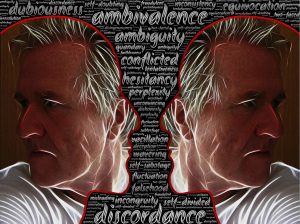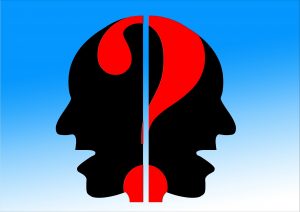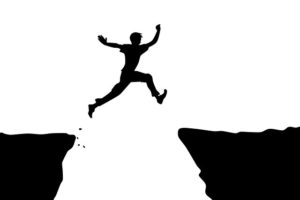Midlife Crisis And Male Menopause: The Challenge For Men
 Midlife is a normal developmental stage that all men get to experience.
Midlife is a normal developmental stage that all men get to experience.
It is at this time, somewhere between 40-60 years of age, that both psychological as well as physiological changes take place.
It is often at this time that a man begins to question what has been driving or motivating him.
- Has he been following his dream or has he been a slave to his job or career?
- Has he made the best choice for a life partner?
- Is he happy?
- Does he know himself?
To complicate matters it is also at this time when a man comes face to face with the incremental loss of his youth and the vitality that he once had.
He can’t play sports like he used to, he can’t run as fast, he is heavier than just a few years ago, he may be losing his hair, he feels he is not as attractive to women anymore, he questions his sexual ability and his health may have finally caught up with him and his bad habits.
The Top 10 Signs of Midlife Crisis
These inevitable shifts in his reality are the unavoidable consequences of aging. Some men handle it well and others don’t. Those that don’t cope well will experience a tougher transition into midlife or a midlife crisis.
Although by midlife one can have more financial and social stability than ever before, for some men this type of stability signals “old age” and it can be frightening. Midlife crisis is essentially a problem of adjustment or transition from one phase of life to another.
The Effects Of Midlife Crisis
This can be a very challenging time for family and friends as well.
The man experiencing a midlife crisis (or very difficult transition) can be tough to reach emotionally. He can become detached, depressed, anxious or irrational at times. He may fill up his time with seemingly superficial activities or become preoccupied with sex, mostly as a way of affirming his manhood.
Some men cope poorly by using drugs and alcohol. Better financial resources present more opportunities for men struggling with their self-image to use drugs as an escape. Drug rehabs all over the country have seen an increase of this age group in their client population.
Some men, craving to feel younger and more virile, may seek the company and adoration of a younger woman. Many marriages have been torn apart by the loss of intimacy or an infidelity caused by this kind of problem.
Midlife is a time when a man’s earlier fantasies can begin to crumble. It is the steady drip of reality, the awareness sinking into his brain that he is passing his peak; that he is no longer the “kid” or young man he was and he has to deal with it.
This can be a liberating and exciting time as he looks into the future with the benefit of his experience. He can define himself as a strong man in midlife willing to explore his sexuality with his life partner and experience the joy and satisfaction of the growth of his family; or he can sink into a deep sadness and fear as he mourns his past.
Adjusting to this new reality is his challenge. It is often at this time that getting a fresh perspective through some form of therapy can be very helpful.
 Male Menopause (Andropause)
Male Menopause (Andropause)
Andropause is a term used to describe a state of lowered androgen levels in men as a result of the aging process. Androgens are a group of hormones that includes testosterone.
At about the age of 40 many men begin to experience a change that is often referred to as a midlife change or, as is described above, a midlife crisis. Having a midlife crisis has to do with a man’s psychology rather than his physiology.
Testosterone Deficiency In Men
This natural physiological and chemical shift (Andropause) has to do with the gradual decline of the production of these Androgens, particularly testosterone. Testosterone is the hormone that stimulates sexual development in male children, and is responsible for the sexual drive in adult men.
Testosterone is also responsible for muscle and bone growth. It has been found that even in healthy men, by the age of 55, the amount of testosterone secreted into the bloodstream is significantly lower than that at age 45.
However Testosterone decline takes place over many years (about 1-2% hormone loss annually from about age 35) and, by the age of about 80, most male hormone levels decrease to pre-puberty levels.
The term Androgen Decline in Aging Males (or ADAM) has been used to describe this phenomenon.
Effects Of Male Menopause
As this gradual decline continues it can cause men to become distracted, irritable, disorganized, dissatisfied and even depressed. Men often have loss of libido, weight gain, suffer some forgetfulness or memory loss and become fatigued more easily.
Obviously this can be traumatic to both the men and their families. It is not the type of subject that will often be brought up in conversation among men.
Men are often embarrassed by these symptoms and, when asked by a spouse or significant other about them, will often deflect the inquiry with a nebulous comment like, “Things have been really stressful lately” or “I need some time to gather my thoughts” or “It’s not you, it’s me”.
Male menopause does not affect all men the same way. Many men do not feel the intensity of symptoms that others do. Although the severity of these Andropausal symptoms may vary from man to man, the inevitability of aging and the decline of youth in all its glory have its impact on all men.
Testosterone replacement therapy, strictly a medical solution, is typically suggested by urologists. This treatment, although often effective, may bring with it an increased risk of elevated (PSA) Prostate Specific Antigens levels in the blood (a blood test that indicates a man’s risk for prostate cancer) .
Therefore blood levels are usually checked often when using this treatment.
 How To Age Gracefully
How To Age Gracefully
Testosterone decline is a natural process and addressing its impact while treating its symptoms should include alternative methods as well as traditional ones.
A more holistic approach, one that would include a change of diet, an increase in exercise, a reduction in stress levels, a change in perspective and an overall healthier attitude can go a long way in helping a man increase his testosterone levels and cope more effectively with the aging process.
In fact, there are many indicators that show that when a man stays active, reduces substance consumption (alcohol, smoking, fatty foods, etc.) and stress, he will likely experience fewer symptoms of Andropause. (Therapy for men at this stage of life should include an exploration of all these other options).
All stages of life have their challenges.
Some men (about 15%) dealing with the stage of midlife, the transition from early adulthood to mature adulthood, going from the invincibility of youth to the vulnerability of middle age, have a difficult time making the transition gracefully.
Recognizing the issue and facing it head on is the best way to deal with most challenges, this one included!
Other articles you may find interesting:
Sex Therapy: 8 Ways to a Better Sex Life
Are Your Sexual Expectations Getting in the Way of a Good Time?
Click here to learn more about how sex therapy can help.
About the Author
Dr. Stan Hyman is a licensed psychotherapist and life coach in private practice in Miami, Florida. His work with men includes helping them work through life changes as well as performing at higher levels while creating a better balance in their personal lives. He also works with couples struggling with powerful issues such as infidelity, careers, intimacy and work life balance.


